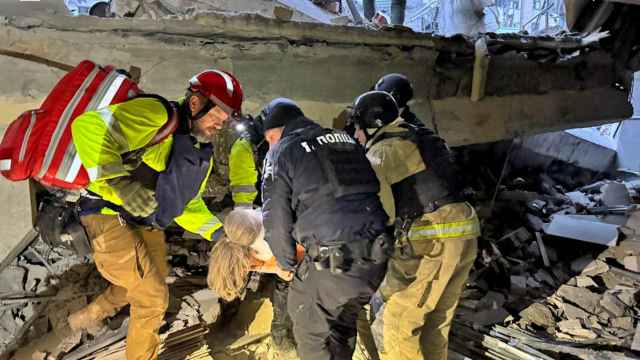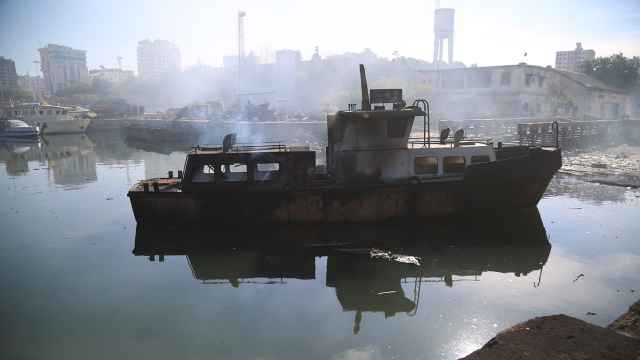Russia's industrial output rose more quickly than expected in January, data showed, in a positive sign that its economy is still showing respectable growth despite strains in the global economy.
But analysts still anticipate a slowdown in the coming months as weaker international growth takes a toll on exports.
Figures released by the State Statistics Service on Wednesday showed that industrial output rose 3.8 percent compared with a year earlier.
The figure represented an improvement on industrial output growth of 2.5 percent recorded in December.
"I would take this as a positive sign," said Ivan Tchakarov, chief economist at Renaissance Capital. "Yes, we are seeing a moderate slowdown in the economy, but this is what is to be expected given what is going on in the rest of the world."
He said the boost in industrial output had been helped by Russia's record low inflation of 4.2 percent in January, which has lifted consumers' real incomes and spending.
The latest industrial output data tie in with recent data on gross domestic product, which grew 4.9 percent in the fourth quarter and by a better-than-expected 4.3 percent in 2011 as a whole.
But Russia's recent growth performance looks less impressive in the context of high oil prices — currently $119 a barrel — which may not be sustained if global growth slows.
Short-term growth has been boosted by Russia's forthcoming presidential election in March, which has led to utility price freezes and higher government spending as Prime Minister Vladimir Putin courts voters.
In a research note, Dmitry Polevoi, an economist at ING Bank, said consumer-oriented sectors and construction contributed to the output boost, with a 4.8 percent increase in manufacturing a key reason for the higher-than-expected growth.
"At the same time, we don't expect this IP data improvement sets the pace for significantly better IP growth in the coming months, since overall uncertainty remains and there are still downside risks to growth from the expected global growth deceleration."
While domestic-oriented manufacturing remained resilient, Russia saw only a modest 1.4 percent rise in the natural resource sectors that underpin its commodity exports, a slowdown on the 1.8 percent growth in December.
A Message from The Moscow Times:
Dear readers,
We are facing unprecedented challenges. Russia's Prosecutor General's Office has designated The Moscow Times as an "undesirable" organization, criminalizing our work and putting our staff at risk of prosecution. This follows our earlier unjust labeling as a "foreign agent."
These actions are direct attempts to silence independent journalism in Russia. The authorities claim our work "discredits the decisions of the Russian leadership." We see things differently: we strive to provide accurate, unbiased reporting on Russia.
We, the journalists of The Moscow Times, refuse to be silenced. But to continue our work, we need your help.
Your support, no matter how small, makes a world of difference. If you can, please support us monthly starting from just $2. It's quick to set up, and every contribution makes a significant impact.
By supporting The Moscow Times, you're defending open, independent journalism in the face of repression. Thank you for standing with us.
Remind me later.





